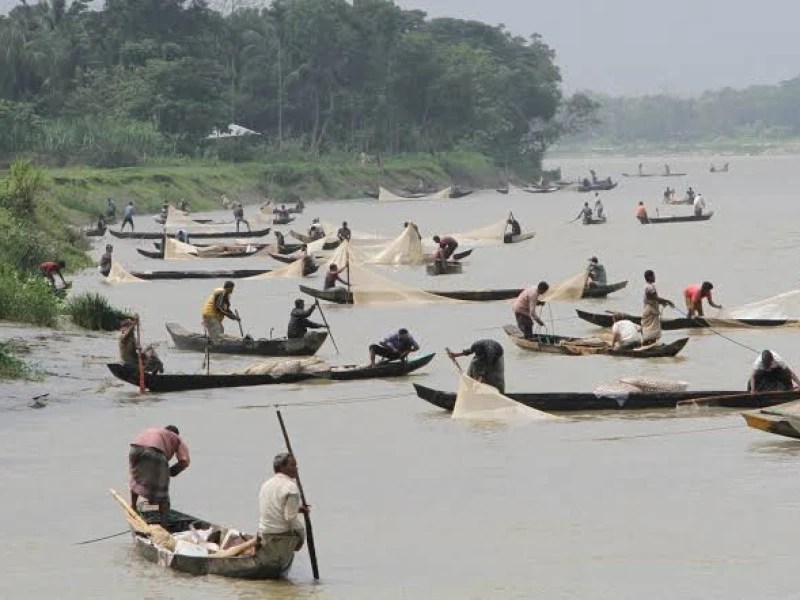The Ministry of Fisheries and Livestock has officially declared the Halda River as a “Fish Heritage” site, according to a gazette notification issued on Wednesday.
In a press release on Thursday, the ministry said the decision aims to ensure safe breeding of carp species and protect the habitat of Gangetic dolphins by conserving the river’s natural environment and improving its ecological quality.
The Halda River, which flows through Ramgarh and Manikchari upazilas of Khagrachari district, and Fatikchari, Raozan, Hathazari upazilas and Panchlaish thana of Chattogram district, along with the adjoining areas specified in the gazette, has been brought under the “Halda River Fish Heritage” designation.
Several restrictions have come into effect from the date of the gazette. No fishing or hunting of aquatic animals will be allowed in the river.
During the breeding season between April and June, fertilized carp eggs may be collected only under the supervision of the Department of Fisheries.
The gazette prohibits any activity that may destroy habitats of plants and animals, alter the natural characteristics of land and water, or harm fish, dolphins, and other aquatic life.
Discharge of sewage or industrial waste into the river is banned, and no river bends may be straightened under any circumstances.
Fishing will also be prohibited in 17 connecting canals during the breeding season from February to July.
No new rubber or concrete dams may be built on the Halda River or its connecting canals. Similarly, no new water treatment plants or irrigation projects can be established without approval from the “Halda River Fish Heritage Monitoring Committee.”
The ministry further stated that no local or foreign entity or individual may conduct research involving the river without prior permission from the committee.
To ensure the natural migration of fish during pre-breeding periods, no obstacles may be created to disrupt water flow in the river and its canals. Heavy engine-driven vessels — including sand or cargo boats and dredgers — will be barred year-round from operating between the Karnaphuli estuary and the Nazirhat Bridge (the sanctuary zone).
Sand extraction by dredging or any other harmful method, tobacco cultivation, and the use of toxic pesticides in farmlands along the river basin are strictly prohibited. Establishing brick kilns near the riverbanks has also been banned.
The ministry said it may impose further restrictions or make necessary amendments to the notification to ensure better environmental and ecological management and to demarcate the boundaries of the heritage area if needed.


 Prev Post :
Prev Post :
-1762446446.webp)